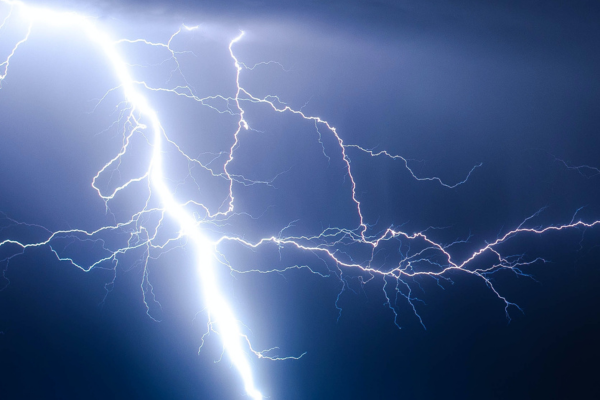Introduction

In this module we’ll dive into the ways you can fully embrace your power to address your acorns – the personal, organizational and/or societal challenges that you are facing now. This module will culminate with you making a choice – a decision – facing into your challenge, taking into consideration how you are situated vis a vis the multiple ways power is distributed (and often maldistributed) in your context – you get to choose whether or not you want to do something about it.
Even if you decide to take a pass this time, it’s still a choice, and you still have the agency to make it. You get to choose whether or not you want to do something about the challenge in front of you. And it’s not always a fully rational choice; in fact, I hope you make that choice in a fully embodied way, but meanwhile, let’s also sort through what’s going on with the most clear-eyed rational perspective possible to inform making a choice that’s right for you.
Your journey to that choice point will include three mini-explorations.
The first is “How have I in any way been avoiding taking responsibility for this issue in my life?” We will use the Drama Triangle as a way to get in touch with your own grounded essence and step into healthy responsibility in a way that feels right for you. In lessons two and three, you’ll meet your personas and discover how, in an unconscious, unintentional way, you are engaging with your challenge.
In Lesson 4, you’ll face into your positional and societally constructed power. This is that “reality check” layer where we take a time out before plunging ahead and doing something we might regret later. Power is maldistributed in our society. We would be foolish not to take this into consideration. You will be supported in considering the risks unique to you and your situation, as well as opportunities for you to cede power if you have a lot of it.
Then, in Lesson 5, from your essence, off the Drama Triangle, understanding the risks and challenges inherent in the maldistribution of power in our society, you will make a choice of whether or not you want to do something about your challenge at all. It is a completely valid choice to say, “not today.” We will still continue with the rest of the modules. Or you may say, “I know there are risks, and I am still willing to take action.” Whatever you choose, we support you fully and we have your back. There are no mistakes here. It’s all in support of your learning and growth and these are frameworks and skills to be applied over and over again in many different contexts.
We hope this module is as powerful for you as it is for us!
How Are You Unconsciously Allowing Your Challenge to Persist? (Personas and Openness to Discovery)
Module Downloads
Worksheets: Openness to Discovery, Villain Persona Assessment, Victim Persona Assessment, & Hero Persona Assessment

Curiosity and humility are EVERYTHING for social change leaders.
EVERYTHING.
If you can stay curious and humble, trust me, you will make ripples of change far beyond your wildest imagination.
If, on the other hand, you lose your curiosity or become arrogant – forget about it. Not gonna happen.
I’m so serious right now.
As you watch this video, please think about your acorn that you want to address. Print out the “Openness to Discovery Minus 3 Ways” handout below and identify all the ways that you, personally, drop out of presence. Highlight all the minus numbers that you do related to this issue.
Notice if your behaviors tend to cluster around any particular minus numbers across hero, villain or victim. Also notice what range you allow yourself. Do you tend to hover in the lower numbers, or do you go all out?
Finally, which minus number most represents how you most often relate to your issue? Highlight that minus number and give that persona a name like I did for mine (Eager Beaver for my hero, Judge Judy for my villain and Angry Penguin for my victim).
Once you have a first-pass at what your personas might be, and perhaps even some names for them, please take a few minutes to complete the Hero, Villain, and Victim Persona assessments. Which of those three were most familiar for you?
By completing these exercises, you should have a good sense of which personas are engaging with your “acorn” or challenge with you. Yes, you have your conscious intentions, but often we also have our unconscious personas along for the ride. The key to embracing our power isn’t to vote our personas off the island – it’s to give the the loving attention they’ve been craving. They’re only trying to help you – as misguided and unhelpful as they may be. Keep on going to Lesson 3 to interview those personas and find out what they’re trying to help you understand!
Interviewing your Persona

So we don’t vote our personas off the island – they’re trying to help us – they’re just going about it in an unhelpful way (and keeping the drama – and therefore our challenge) going.
So what do we do with our personas? We INTERVIEW them! We bring them from our unconscious into our conscious field. Using the above interview format – exactly this format – as shared in the video and demonstrated with me and one of our fellowship graduates, Katie Hong. Watch us demonstrate how to do a persona interview then if you want to, go ahead and either interview one of your personas or ask a friend or family member to play along with you.
The key is to follow the interview questions EXACTLY. And to not over-think it. To just blurt out the first thing that comes to mind to you – with no filter or packaging. Don’t try to be appropriate or right. Just blurt it out. Maybe you can interview all of your personas that you identified in the last lesson. The questions are available for download here.
Please don’t take this tooooo seriously – remember to have fun with this – that is part of melting the grip that your personas have on you. And be sure to notice what your personas really want. That is going to be super helpful as we proceed with the course.
Embracing Your Societal and Positional Power (or Lack Thereof)
Module Downloads
Worksheets: Societal Power Assessment, Positional Power Assessment

We all operate with a lens through which we see the world and our work. We cannot assume that we are neutral, so before we start digging into what we want to change “out there,” it is essential that we interrogate what we’re starting with “in here.”
First, I invite you to reflect on which aspects of your identities have been privileged and marginalized by the society in which you live. It is entirely possible that for any aspect listed below you have experienced in different contexts both privilege and marginalization. There are no right or wrong answers – this is your experience.
Print out the document that the Social Justice Training Institute shared with us to map out the relevant aspects of your own identity as well as that of others involved to the extent you believe it might be relevant.
I’ll use myself as an example. I hardly had a care in the world until 2nd grade when a small number of kids gave me a hard time about my gender expression. “You’re not a girl!!!” They taunted. I felt ashamed and I internalized that there was something fundamentally wrong with my essence – with my core self. It was deep down in there, but it was there. I also doubled-down on being myself – almost as if it were a rebellion against the broader societal forces. I gathered strength from being true to myself, but everybody copes differently. And it’s all coping. And it’s all ok. Remember to do this lesson with all kinds of self-love. Something in me knew that I cared more about being true to myself than I did about someone else’s opinion. And that existed in parallel with my shame. Both were true and both shaped me. But even now as a 50+ year old – I was going to say woman but more accurately I identify as non-binary person – when somebody treats me poorly there is a voice in the back of my head asking, “did they say/do that because I’m not conforming with gender norms?”
When I consider how I am going to embrace my power, I inevitably find myself doing a double-check of the consequences – fleeing forward to wonder if someone might retaliate against me with violence or cruelty. Wondering if my best attempt to show up and make a difference will be punished or retaliated against and cause harm to me or my family.
This is just one example from one person about one aspect of my identity that my particular society marginalizes. This same dynamic can happen for any aspect of your identity that is marginalized in our society. I cannot pretend that I have any idea what that experience is for you – I don’t – but I do think it’s important when some aspect of our identity is marginalized in a situation that we take a step back, do that gut-check, and be sure that we want to proceed. Embracing your power is a choice. It’s always a choice, one that I want you to enter into consciously, not because you “have to.” It is not for anybody other than you to determine when and how and where you’ll assert your personal power.
Here’s another example on the other side of the coin: my privilege. It wasn’t until well into my adulthood that I gave my white skin a second thought. I mean, my parents talked to me about race, but it was always around “not treating anybody else differently because of the color of their skin.” I was raised to “not see color,” which we all know is a far cry from an anti-racist upbringing. Neither my parents nor my teachers nor the priests or nuns in my Catholic schools – nobody – ever spoke to me one single time about what it meant for me to grow up as a white person in the United States. So, as you can imagine, I have had some catching up to do. Not fully considering my own race until midlife has shaped what I notice and what I don’t. It has shaped my worldview and I have chosen to make a significant strides toward catching up – but I was starting from behind.
This means that when I consider how I want to use my power it’s essential that I bear in mind my racial privilege and check myself to make sure I’m not showing up as some unfortunate manifestation of “BBQ Becky.” Again, it’s not that I don’t use my power, it’s that I do so with full awareness of how my identity and socialization and miseducation might lead me to find something problematic that is in fact, not. That my privilege might have separated me so much from my humanity that I feel entitled and superior and assume the way I think things “should” be is objectively correct. That if I lack cultural humility I might end up causing harm when I ultimately take action. Here’s what I know for sure: I do not want to be BBQ Becky. I want to align my life to be in right relationship with all people. And if I don’t bear this in mind constantly, the forces of inertia and socialization will collude so that despite my best intentions, I will be BBQ Becky.
So the way I am facing into my own societal power – both aspects of my identity where I experience marginalization and where I experience privilege – I invite you to do the same for you. Which aspects of your identity does society marginalize, and which does it privilege? This handout from the Social Justice Training Institute lists many for your consideration though it is by no means exhaustive. Many of us are a complicated mix of both and that’s ok. It is useful to bear this in mind and hold it with care.
In addition to your societally constructed power, you also have relative positional power. Please refer to the Positional Power handout to answer the related questions and diagram out how you relate to the other people involved in this issue or challenge with you.
Again, you will not be asked to show this to anyone. This is all information for you to take into consideration as you decide whether or not you want to do something or not. Take a minute and appreciate yourself for being willing to be with this knowing. I appreciate you for being willing to explore this.
Thank you for engaging in this reflection and this incredibly important work. Everything else builds off of this foundation of YOU.
Choosing Your Personal Power

So here we go – where it all comes together. You get to decide whether or not you want to do anything about your “acorn” or challenge you’re facing. Even if you decide not to do anything right now – it is still a way of reclaiming your agency.
Please download the worksheet, watch this video, and decide what, if anything, you want to do right now about your issue.
One thing to bear in mind is this isn’t intended to be a purely rational choice. Though we have considered how you are situated in your organization and society – with regards to the maldistribution of power and all that entails – that is not the only factor.
Once you get off the Drama Triangle, and tap into what you really want through those persona interviews, that can guide your actions. I also want to encourage you to take into your full body knowing and wisdom and tune into what generates the most aliveness for you. Yes, be rational, be smart. And be brave. And do you. Nobody gets to decide but you. Sometimes the bravest smartest thing you can do is close the door and walk away. No matter what you choose, know that we support you and honor you and are so impressed that you are rolling up your sleeves and doing this work.
This module on embracing your power is a big deal. You’ve made it this far and you’ve covered a lot of terrain. From here we move into clarifying your commitment- regardless of what you decided here and now. But for now, take a minute to appreciate yourself for doing this work and to celebrate how far you’ve come!
